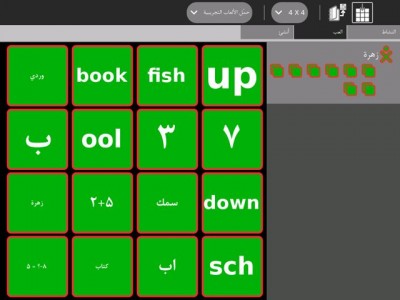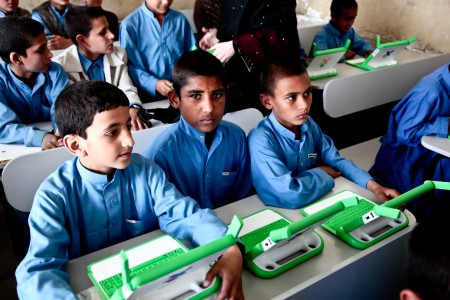Today marks the end of the first-ever XO Summer Camp in the Amari Boys School in the West Bank city of Ramallah. Following the teacher training last week, children came school this week to get familiarized with XOs well before the start of their new school year. The schoolteachers did an amazing job relaying their new skills with the XO to the kids along with help from our amazing volunteers at PaleXO!
The children spent three days learning and exploring activities on their XOs both at home and in the classroom, and took to mastering the programs even faster than their teachers! Kids loved connecting and sharing with each other through the Mesh Network and had a blast playing with the various activities, even learning how to type their names in Write was a joyful game. When showing children the Record activity, featuring a camera, kids were thrilled; unanimously across classrooms kids began to break out dancing in their seats for the camera!
They were so excited to begin; all the students began lining up outside their school as early as 7am each morning to start their day of fun and learning. This was a great opportunity to make learning fun and stimulate school attendance, even in the summer time! As a great finale to the summer children’s parents were invited to attend today’s session in order to maximize community participation in the OLPC project. Children were excited to show their parents what they had learned, and the principal hosted a brief orientation session in order to explain the importance of the project to the future of their children’s education.
Next week we begin our XO Summer Camp at the Amari Girls’ School!







